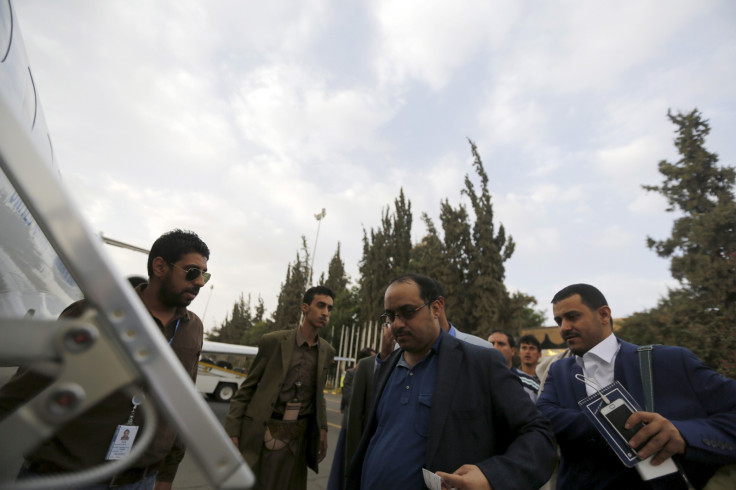Yemen's Shi'ite Houthi delegation in Geneva for UN-sponsored peace talks

The Yemeni delegation comprising members of various factions of the Shi'ite Houthi rebels is in Geneva to participate in UN-sponsored peace talks.
The much-delayed talks are aimed at easing tensions in conflict-stricken Yemen, where the rebel positions are being pounded by Saudi forces.
Despite earlier speculation that the negotiations might be further delayed – after the United Nations plane left to Geneva empty on Saturday, 13 June – the world body has confirmed the talks will take place.
A UN plane carrying the delegation, which includes members of socialist and Haqq political parties, left Yemen on Sunday flying out of capital Sana'a.
Representatives of President Abd-Rabbu Mansour Hadi have also arrived in the Swiss city for the discussions.
Announcing the beginning of "preliminary inclusive consultations," the UN's peace envoy to Yemen Ismail Ould Cheikh Ahmed said: "The United Nations takes this opportunity to appeal to Yemen's political actors to participate in these consultations in good faith and without pre-conditions, and in a climate of trust and mutual respect."
UN Secretary General Ban Ki-moon is set to participate in the opening session of the talks before leaving to New York later.
"We are going to Geneva and are prepared to go to the farthest point in the world for the sake of our steadfast people, who suffer terribly from the barbaric bombardment and unfair blockade," a member of the party loyal to former Yemeni president Ali Abdullah Saleh told the state-run Saba news agency.
The talks are also taking place at a time when the Houthis are gaining ground near the Saudi-Yemen border.
Sunni powerhouse Saudi Arabia and its allied forces have been carrying out airstrikes in Yemen against Houthi rebels, who are widely thought to be backed by Shi'ite-inclined Iran.
The continuing turmoil has been raising serious concerns that regional powers - Shi'ite-inclined Iran and the world's top oil exporter Saudi Arabia along with other Sunni Muslim states in the region - are throwing their weight behind the Houthis and the effectively-exiled Yemeni leader Hadi respectively.
© Copyright IBTimes 2025. All rights reserved.






















